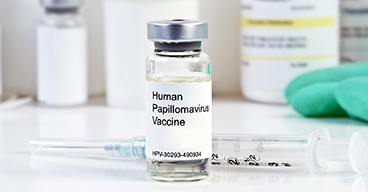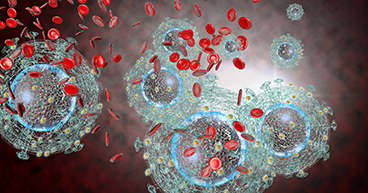
Cervical cancer may not affect men, but that doesn’t mean men shouldn’t get the human papillomavirus (HPV) vaccine. Although HPV is linked to nearly all cases of cervical cancer, it may raise the risk for other cancers, too—including those that affect men.
For instance, a new study shows the inoculation may be more effective at preventing cancer—particularly head and neck cancer—in men than in women. Researchers hope the findings will help dispel the common misconception that HPV only poses health risks to women.
In this article, we’ll explore:
- What is HPV?
- What is the HPV vaccine for men?
- Cancers linked to HPV in males
- How the HPV vaccine may reduce risk
If you’ve been diagnosed with cancer and are interested in a second opinion on your diagnosis and treatment plan, v with a member of our team.
What is HPV?
Human papillomavirus is common. It refers to a group of more than 200 related viruses that cause new infections in around 13 million people in the United States each year. Most of the time, HPV infections go away on their own, but sometimes they don’t and may lead to cancer. In fact, they account for about 37,000 cases of cancer each year.
“The body’s immune system gets rid of HPV all the time,” says Barbara Buttin, MD, a gynecologic oncologist at City of Hope® Cancer Center Chicago. “Most people are exposed to the virus many times and, in most cases, it doesn’t hang around. Only in a few cases does it become a chronic infection. That’s often in people whose immune systems are compromised, like those who’ve had an organ transplant or who have AIDS.”
Besides cervical cancer, HPV is linked to several other cancers specific to women, including vaginal cancer and vulvar cancer.
What is the HPV vaccine for men?
In 2006, the first HPV vaccine, Gardasil®, was approved by the U.S. Food and Drug Administration (FDA). The HPV vaccine is intended for both males and females.
The HPV vaccine has the potential to prevent more than 90 percent of HPV-related cancers. Just 12 years after it was introduced, in fact, the number of HPV infections linked to cancers and genital warts had dropped by 88 percent among teenage girls and 81 percent among young adult women.
Since the vaccine came on the market, most studies have focused on its effectiveness at reducing the risk of cervical cancer in women. And misconceptions about HPV—many people, for example, still view the vaccine as only a protective measure for girls—have led to lower-than-hoped-for vaccination rates, especially in men.
In 2022, 58.6 percent of U.S. teenagers between the ages of 13 and 15 had received all the recommended doses, with 60.7 percent of girls receiving the immunization and 56.6 percent of boys.
Who should get the HPV vaccine?
The Centers for Disease Control and Prevention (CDC) recommends that boys and girls get the HPV vaccine as part of a routine inoculation when they’re 11 or 12 years old.
The vaccine can be administered in children as young as 9 and in young adults up to age 26. If you’re older than 26 and interested in getting the HPV vaccine, talk to your doctor.
Cancers linked to HPV in males
According to the new study, the HPV vaccine is effective at preventing cancers linked to HPV—in particular, head and neck cancer in men. That’s good news considering HPV is associated with several cancers that affect men, Dr. Buttin says, including:
Cancers linked to HPV
| Cancer type |
Annual diagnoses |
Percent likely caused by HPV |
Number likely caused by any HPV |
|---|---|---|---|
| Cervical | 11,869 | 91 | 10,800 |
| Vaginal | 875 | 75 | 700 |
| Vulva | 4,238 | 69 | 2,900 |
| Penile | 1,364 | 63 | 900 |
| Anal | 7,560 | 91 | 6,900 |
| Oropharyngeal | 20,805 | 70 | 14,800 |
How the HPV vaccine may reduce risk
The new findings suggest men vaccinated for HPV have a significantly lower risk of developing all HPV-related cancers, and a substantially reduced risk of developing head and neck cancer.
While women vaccinated for HPV have a decreased risk of cervical cancer and other HPV-related cancers, there wasn’t a significant difference in their reduced risk for head and neck cancer.
Protection from head and neck cancer is just one more reason boys and men should get the HPV vaccine, which also may help prevent them from passing on HPV to their partners later in life.
If you’ve been diagnosed with cancer and are interested in a second opinion on your diagnosis and treatment plan, call us or chat online with a member of our team.



